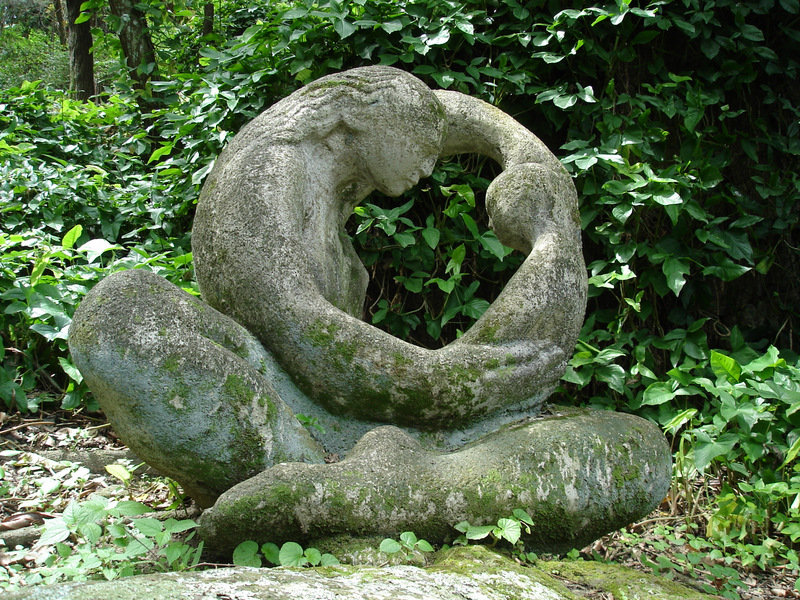
Motherhood
Nelly Romeo Alves, 1979
I loved him, and out of Egypt I called my son.
The more I called them,
the more they went from me;
they kept sacrificing to the Baals,
and offering incense to idols.
Yet it was I who taught Ephraim to walk,
I took them up in my arms;
but they did not know that I healed them.
I led them with cords of human kindness,
with bands of love. I was to them
like those who lift infants to their cheeks.
I bent down to them and fed them.
- Hosea 11:1-4
My dear friends,
In today's reading from the Hebrew scriptures, the prophet Hosea speaks of a profound, parental love that the Divine holds for Israel, akin to the love a mother or father holds for a child. The passage depicts the waywardness of Israel, their turning away from this love, drawn instead to the impermanent allure of material and sensory pleasures symbolized by the Baals and idols. Despite this, the Divine love is unwavering, filled with kindness, healing, and tender care.
In Buddhism, the concept of upaya, or skillful means, resonates with this portrayal of a guiding and nurturing force. A Bodhisattva, much like the Divine, extends compassion and love unconditionally, even when the people, like sentient beings in samsara, stray from the Way. The "cords of human kindness" and "bands of love" can be seen as the methods through which enlightenment can be fostered, gently guiding rather than compelling by force.
because they have refused to return to me.
The sword rages in their cities, it consumes their oracle-priests, and devours because of their schemes.
My people are bent on turning away from me.
To the Most High they call, but he does not raise them up at all.
- Hosea 11:5-7
The people's return to Egypt and the rule of Assyria symbolizes the cyclic nature of suffering that ensues when one turns away from the path of righteousness, a theme that parallels the Buddhist understanding of karma and the endless cycles of birth, death, and rebirth.
How can I make you like Admah? How can I treat you like Zeboiim?
My heart recoils within me; my compassion grows warm and tender.
- Hosea 11:8
The boundless compassion of the bodhisattva, who vows to save all sentient beings from suffering, reflects the Divine's refusal to give up on Ephraim, despite their waywardness. The heart of the Divine "recoils" and "grows warm and tender," like bodhicitta, the awakened heart that cannot bear the suffering of others and is moved to act.
for I am God and no mortal, the Holy One in your midst, and I will not come in wrath.
- Hosea 11:9
In the promise that the Divine "will not come in wrath," we find a profound lesson in forgiveness and the transformation of anger into compassion. This is a cornerstone of spiritual practice in Mahayana Buddhism, where anger is seen as one of the Three Poisons that cloud the mind and lead to suffering.
when he roars, his children shall come trembling from the west.
- Hosea 11:10
As the LORD "roars like a lion," calling the children back, we are reminded of the lion's roar of the Buddha, whose teachings reverberate with the authority of truth, calling all beings to awaken from the slumber of ignorance.
and I will return them to their homes, says the LORD.
- Hosea 11:11
Lastly, the promised return of the people to their homes finds its parallel in the ultimate goal of enlightenment, where all beings find their way back to their true nature, free from the delusions and attachments that bind them to samsara.
From Hosea 11:1-11, we learn the importance of returning to the path of spiritual practice, the value of compassion and kindness, the transformation of anger into compassion, and the ultimate promise of return to one's true home — enlightenment. These lessons are not only historical or doctrinal but are immediate and practical, guiding us in our daily lives and in our interactions with others. They teach us to remain steadfast in our spiritual commitments, to be compassionate towards ourselves and others when we stray, and to trust in the possibility of transformation and return to the source of boundless love.